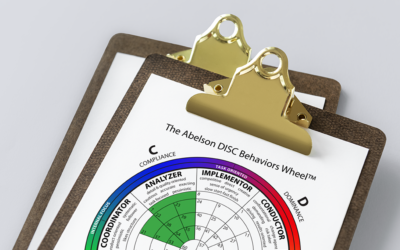If you want read “Why Teams Work – Part 1“ click here
Fosters Different Ideas, Creativity, & Innovation
When people have different tasks, they also see things through a different lens. For example, people who have more D, I, S, or C in the DISC behavior style see different things in different ways. More specifically, if you specialize on showing a product, you see all the little facets of that product. When listing a home, you focus on the broad brush of how many bedrooms, bathrooms, and square feet it has, but you also focus on the amount of clutter, the color scheme, or the need to paint certain areas. If you are selling cars you focus on different aspects and features of the car; the technology, the entertainment, the comfort, the safety options. No matter what the product or process, different people focus on different ideas and become more creative and innovative on aspects of that product that help sell that product. I don’t sell homes or cars. I sell HR solutions. When I look at a home or a car I see very different things than the sales person. They use their different lens to be creative and innovative on helping me buy the product they sell.
Increase Efficiency, Performance, Satisfaction, & Success
Specialization allows for increased efficiency as we learn and master the fewer tasks more quickly. It allows for people to perform better, again, because there are fewer tasks to learn and master. A person who “cold calls” learns certain scripts to use depending on how the person they call on is responding to their call. They are more likely to succeed because of this and feel more satisfied with their work and job.
As another example, a customer service representative frequently interacts with someone who is frustrated and sometimes angry. It is their job to cool down the emotions and to do what can be done so the customer leaves satisfied. If you specialize on a certain product or step in a process, you can more easily master ways to help the client and to decrease those negative emotions. There are certain characteristics that are needed to be a successful customer service representative, but dealing with a person having an issue with their bank can be very different than dealing with someone with an issue with their car or home. Efficiency, performance, satisfaction, and success are easier when we are specializing on a subset of a larger task.
Decrease Stress & Burnout
There are two aspects that affect stress and burnout. Both deal with the extent the job itself is perceived as being stressful. First, when we have a larger job with a larger set of tasks, there is a greater likelihood something will be forgotten or “fall between the cracks.” There is also a greater likelihood we won’t have time to do all the tasks. After all, we are probably less efficient with some of the tasks, since we don’t do them regularly or our behavior style is not well suited to do the task. These and other factors, increase stress and burnout.
Second, is the extent there is a difference between our natural behavior and the behavior we have adapted to do our job. The job selection process needs to hire people with behaviors that match job needs and the motives that match the job’s culture. Selection processes that don’t use effective assessments tools are less likely to succeed. Additionally, we may have a boss that wants us to do things their way, which may be different from our way. The selection process may not be effective or we may experience changes in the internal culture or external environment that create a mismatch between the job and our behaviors or what motivates us. The more specialized the job, the less likely either of these two situations will occur. We are less likely to experience stress and burnout.
Allows for Time Off
Finally, being in a team allows us to take off from work. When we work alone and have to do everything ourselves, not working, usually means not making money. When we are In a team others are doing work while we take time off or go on vacation. Others can even be trained to do our work, allowing those tasks to continue in our absence. They may not do the job as well as us, but it still gets done. Additionally, many teams have more than one person who does the same task(s) as the person who is taking the time off. Either situation allows us to take needed time off for a vacation or personal needs.
How Can Assessment Tools Assist in Team Effectiveness
There are many ways effective assessment tools can assist in team effectiveness. Here are several:
- First, effective hiring systems identify the characteristics needed by the employee to succeed on the job. Different jobs require entirely different characteristics for the staff to succeed and master the job. The process to determine these characteristics has many names, but we call it benchmarking.
- Second, there is a need to realize the most effective benchmarks look at more than just behaviors. They look at behaviors, motives (what drives the behaviors), how people deal with emotions (emotional intelligence), how they deal with stress, and if a leader, if they have the right leadership characteristics. There Is no such thing as one type of leadership for all different leader situations.
- Third, we need to be able to apply the assessment tool concepts to the different people needs within the organization. The entire hiring process, managing communications/conflicts/stressors, building teams, coaching, and internal reassignment (usually advancement) as well as external transferring (usually firing) need to be effectively managed and led. The assessment company you use should have a training and/or a consulting service that helps you most effectively manage your team. We have online and in-person training as well as consulting to master our assessment tools and your situation.
Picking the right organization to assist you with all this or an organization who can train your people to do all this increases the effectiveness, performance, success, and satisfaction of your team. We are one of those organizations.




